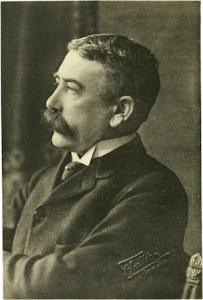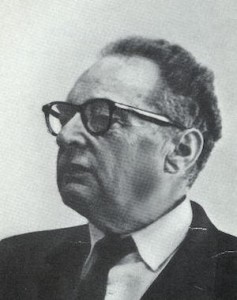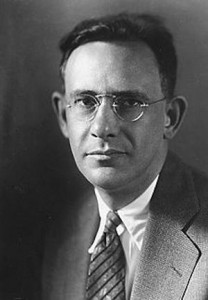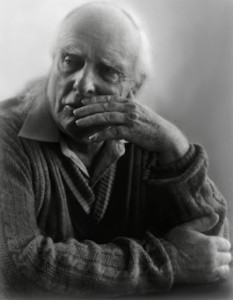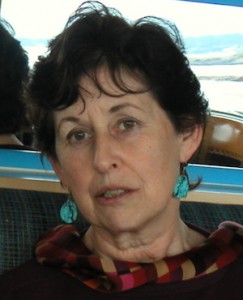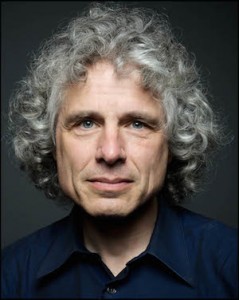7 Linguists Who Changed the Game
We’ve all heard of famous physicists like Isaac Newton and Albert Einstein; everyone knows the names of famous composers like Beethoven, Bach, and Brahms. But how many people can claim that they know the names of some of the most influential linguists? Indeed, important names in linguistics have not quite infiltrated the mainstream in the way that they have in hard sciences and music. This list will give you a crash-course in big-name linguists, and the ideas they had which changed the field of linguistics forever.
1. Ferdinand de Saussure (1857 - 1913): Linguistic signs
Image of de Saussure sporting an impressive mustache via Wikipedia
Swiss linguist Ferdinand de Saussure is widely considered to be one of the forefathers of both linguistics and semiology, which is the philosophical study of the interpretation of signs and symbols. Most notably, Saussure introduced the idea that every word is a linguistic sign, which consists of two components: the signifier, or the phonetic form of a word (e.g., the word “dog” consists of two consonants split up by a vowel); and the signified, or the conceptual meaning underlying the sign (e.g., a dog is a furry animal that is commonly used as a household pet). Crucially, Saussure articulated the arbitrariness of the linguistic sign: the phonetic form and the underlying concept of the word “dog” have no natural link, and instead are the product of social interaction. The arbitrariness of meaning and form is a fundamental tenet of modern linguistics.
2. Roman Jakobson: Distinctive features
Image of Roman Jakobson via Émile Beguin / Wikipedia
Russian-born linguist and literary theorist Roman Jakobson had many influential ideas about language; most remarkably, he changed the way scholars studied phonology, the sound structure of language. Specifically, he proposed the idea of distinctive features, which suggests that all sounds of speech are marked by binary contrasts which can be described and quantified. The difference between “p” and “b”, for instance, is that “b” uses our vocal chords (it’s voiced), whereas “p” does not (it’s unvoiced). Similarly, “b” and “m” are the same, except in “m”, air comes out of the nose (it’s nasal), whereas in “b”, it does not (try it!). Though the idea of distinctive features has been questioned in recent years, it allowed linguistics to classify the sounds of languages in an organized, hierarchical structure, which had previously been impossible.
3. Edward Sapir (1884 - 1939): Linguistic relativity
Image of Edward Sapir via Wikipedia
Edward Sapir was a linguistic anthropologist whose thorough classification of indigenous American languages is still widely used today. Sapir is most famous, however, for a concept known as linguistic relativity, which he developed with his student, Benjamin Whorf. This hypothesis, in its strongest form, claims that the language one speaks drastically influences the way in which one perceives the world. This hypothesis has been largely dismissed by modern linguists, but caused significant discussion and consideration about the link between language and culture.
4. Paul Grice (1913 - 1988): Cooperative principle
Image of Paul Grice via Pierangela Albertini/ Esse
Paul Grice is one of the most important contributors to pragmatics, which is the study of how context contributes to meaning. His best-known idea is the cooperative principle, which breaks down how people behave in conversations in order to enable effective communication. In general terms, Grice articulates that speakers must be truthful, relevant, and unambiguous, and must say neither too much nor too little. If a speaker violates one of these principles (known as “maxims” in Grice’s terminology), communication is compromised. A classic example of a violation of the cooperative principle is if somebody says to you, “I love you. Do you love me?” and you answer, “Yes.” This is saying too little, which suggests that your answer might be a lie.
5. Noam Chomsky (1928 - ): Universal grammar
Image of Noam Chomsky via Andrew Rusk/ Wikipedia
Probably the best-known name on this list, Noam Chomsky is famous for many things. But within the realm of linguistics, he’s most famous for his idea of universal grammar, which poses that all languages have the same underlying structure, and simply use different words and sounds on the surface. Humans, Chomsky claims, are biologically equipped with a language acquisition device, which endows us with the innate ability to learn language.
6. Eve Clark (1942 - ): First language acquisition
Image of Eve Clark via Stanford University
Users of Immersia are most likely interested in learning a second (or third, or fourth!) language. However, in order to understand how it’s best to learn a second language, we must also understand how we acquire our first language. Eve Clark is a pioneer in the field of first language acquisition, and has revolutionized the way in which we understand how children pick up language. From babbling to coherent conversation, Eve Clark proposes theories and cites evidence that sheds insight into the mystifying topic of how children learn their first language so successfully and efficiently. Ultimately, this information will help us understand how to maximize efficiency in second language acquisition, too.
7. Steven Pinker (1954 - ): Popularizing linguistics
Image of Steven Pinker via Simon Fraser University / flickr
In his wildly popular books such as The Language Instinct, Steven Pinker argues for a biological basis of language acquisition. As the title suggests, he proposes that language is an instinct — a behavior which, like any other instinct, was formed by natural selection, and has adapted to suit humans’ communicative needs throughout time. His accessible, fun-to-read books have made great strides in popularizing the field of linguistics, and making it accessible to those outside the realm of academia.
Nowadays, linguistics is a rich field with many subdivisions — sociolinguistics, psycholinguistics, neurolinguistics — and there are too many brilliant minds in each field to fit in this article. Still, these seven prominent figures are a good starting point if you’re looking to get a sense of who the major players are.
And if you’re looking to amp up your own linguistic skills, one of the best ways to do so is to take advantage of your brain’s aptitude for learning languages and familiarize yourself with an entirely new syntax. Indeed, learning a foreign language is not only beneficial from a linguistic standpoint, but also is a great way to open the door to new personal and professional opportunities. Send us a quick inquiry to see how we can help you best learn your next foreign language.



